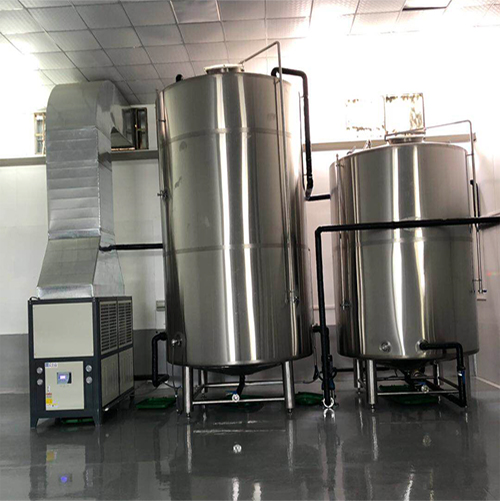Strengthening management of orchards or vegetable gardens, rational fertilization and irrigation can not only increase production, but also improve product quality, and at the same time provide guarantees for long-term storage. The higher the quality of the general fruit and vegetable products, the better their storage and disease resistance, and the lower the quality of the raw materials, the longer the shelf life. In agricultural technologies such as fruit and vegetable cultivation and management, the main measures affecting the storability of fruits and vegetables are fertilization and irrigation techniques.
First of all, the quality and storage of fruits (apples, pears, peaches, oranges, bananas, grapes and tropical, subtropical fruits, etc.) and vegetables (belted bell pepper, tomatoes, cucumbers, cauliflower, garlic, and leafy vegetables) for fertilization The influence of sex is great. Generally used for long-term storage of fruits and vegetables, in the production process, should try to control the amount of nitrogen fertilizer application. Especially in the middle and later stages, phosphorus, potassium, calcium fertilizers, and micro-fertilizers such as boron, manganese, zinc, and iron should be appropriately increased. In the growing season, foliar spraying technology is used to increase the calcium, boron, manganese, phosphorus, and potassium contents of fruits and vegetables. Reduce the ratio of nitrogen and calcium, balance the relationship between the elements and nitrogen, thereby improving the storage tolerance and disease resistance of fruits and vegetables (mainly anti-physiological diseases). Too much application of nitrogen fertilizer will reduce the resistance of fruits and vegetables, shorten their storage life, and increase rot loss in serious cases. Therefore, the application of organic fertilizers and compound fertilizers containing humic acid should be emphasized in the production of fruits and vegetables.
Second, reasonable irrigation is an effective measure to ensure the normal growth of fruits and vegetables. It is generally required that the fruits and vegetables should be stopped for irrigation 7 to 10 days before harvesting. Otherwise, the storage performance of fruits and vegetables will be greatly reduced, and the loss of rot and loss of water during storage will be increased.
First of all, the quality and storage of fruits (apples, pears, peaches, oranges, bananas, grapes and tropical, subtropical fruits, etc.) and vegetables (belted bell pepper, tomatoes, cucumbers, cauliflower, garlic, and leafy vegetables) for fertilization The influence of sex is great. Generally used for long-term storage of fruits and vegetables, in the production process, should try to control the amount of nitrogen fertilizer application. Especially in the middle and later stages, phosphorus, potassium, calcium fertilizers, and micro-fertilizers such as boron, manganese, zinc, and iron should be appropriately increased. In the growing season, foliar spraying technology is used to increase the calcium, boron, manganese, phosphorus, and potassium contents of fruits and vegetables. Reduce the ratio of nitrogen and calcium, balance the relationship between the elements and nitrogen, thereby improving the storage tolerance and disease resistance of fruits and vegetables (mainly anti-physiological diseases). Too much application of nitrogen fertilizer will reduce the resistance of fruits and vegetables, shorten their storage life, and increase rot loss in serious cases. Therefore, the application of organic fertilizers and compound fertilizers containing humic acid should be emphasized in the production of fruits and vegetables.
Second, reasonable irrigation is an effective measure to ensure the normal growth of fruits and vegetables. It is generally required that the fruits and vegetables should be stopped for irrigation 7 to 10 days before harvesting. Otherwise, the storage performance of fruits and vegetables will be greatly reduced, and the loss of rot and loss of water during storage will be increased.
Glycol tank is made of stainless steel, double walled, jacket cooling plate, insulated with PU. The size is as to the capacity of brewery and numbers of beer fermentation and storage tanks. 3 or 4 feets construction with pressure plates.
Glycol tank provide cold liquid to keep the low temperature of all Beer Tanks. Glycol is running in a recycle system, after cooling down beer in fermenters, it will flow back to glycol tank. All the pipes are covered by insulation.

Brewery Glycol Tank
Glycol Tank,Glycol Water Beer Tank,Glycol Beer Fermenter Tank,Brewery Glycol Tank
Dongguan Deao Food Equipment Co.,Ltd , https://www.craftbrewtech.com